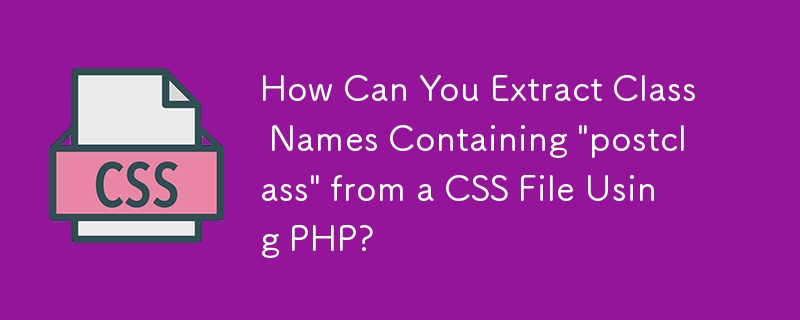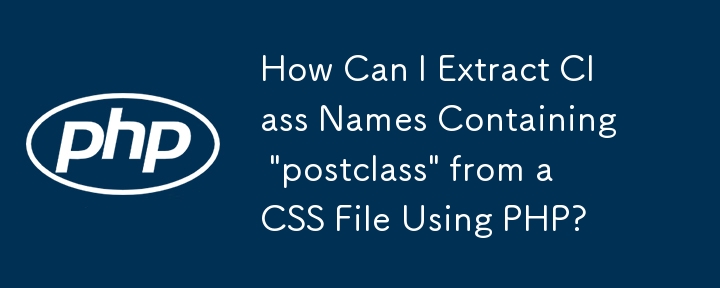Found a total of 10000 related content


How to Zip and Unzip Files in PHP
Article Introduction:The advantages of network transmission file compression are significant, and the total file size after compression is usually greatly reduced, saving bandwidth and speeding up user downloads. Users can decompress at any time after downloading. In short, compression can significantly simplify network transfers of files for you and your visitors.
Manually compressing files can be cumbersome, but luckily, PHP offers many extensions that specialize in handling file compression and decompression. You can use the functions in these extensions to automatically compress PHP files.
This tutorial will guide you how to compress files into zip archives in PHP and decompress files from zip archives. You will also learn how to delete or rename files in your archive without decompressing first.
PHP single file compression
Multiple file compression in directory Modify or overwrite archives
2025-03-04
comment 0
889
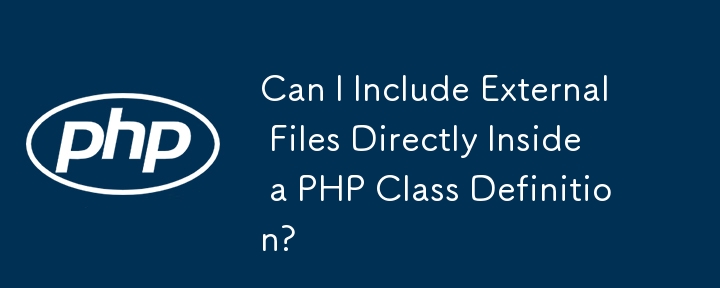
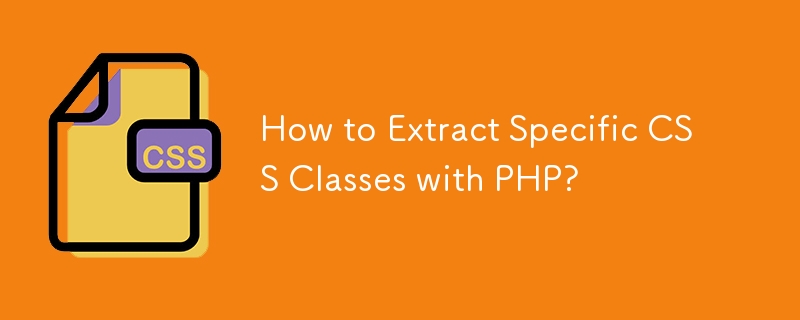
How to Extract Specific CSS Classes with PHP?
Article Introduction:Parsing CSS with PHP for Selective Class ExtractionIn this article, we aim to tackle the challenge of parsing a CSS file and extracting specific...
2024-11-15
comment 0
975
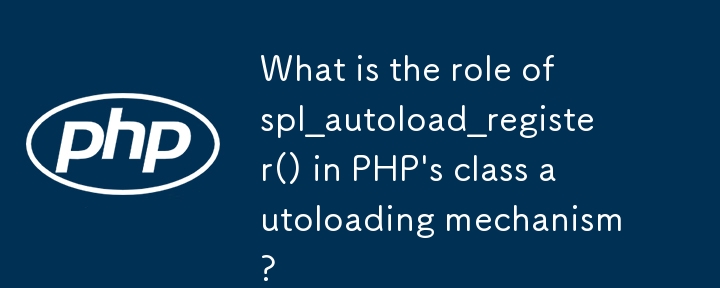
What is the role of spl_autoload_register() in PHP's class autoloading mechanism?
Article Introduction:spl_autoload_register() is a core function used in PHP to implement automatic class loading. It allows developers to define one or more callback functions. When a program tries to use undefined classes, PHP will automatically call these functions to load the corresponding class file. Its main function is to avoid manually introducing class files and improve code organization and maintainability. Use method is to define a function that receives the class name as a parameter, and register the function through spl_autoload_register(), such as functionmyAutoloader($class){require_once'classes/'.$class.'.php';}spl_
2025-06-09
comment 0
413
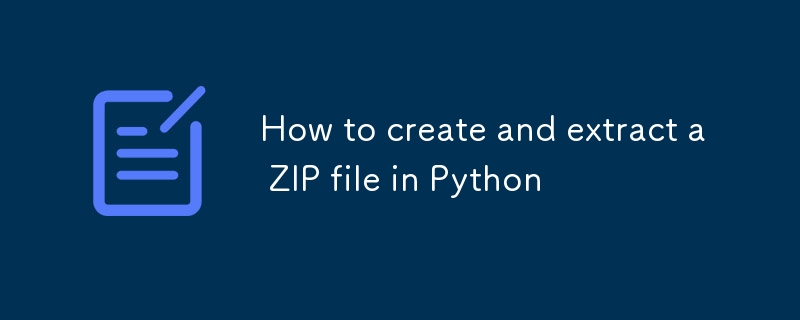
How to create and extract a ZIP file in Python
Article Introduction:Using the zipfile module in Python can directly create and decompress ZIP files. 1. To create a ZIP file, you need to use the ZipFile class to open the file in write mode, and add the file through the write() method. When packaging the directory, you need to traverse the file recursively and pay attention to the path processing; 2. Unzip the ZIP file to restore the complete directory structure by extractall() method, or you can also selectively extract a single file after viewing the content through namelist(); 3. Other techniques include handling Chinese garbled code, detecting whether the ZIP is corrupt, setting compression levels and password protection (requiring a third-party library). Mastering these key points can meet daily ZIP file operation needs.
2025-07-21
comment 0
186

Hassle-Free Filesystem Operations during Testing? Yes Please!
Article Introduction:Virtual File System (VFS) simulates file system operations in unit tests, avoiding the hassle of cleaning temporary files. This article describes how to use the vfsStream library to simplify the testing of file system operations in PHP unit tests.
First, we have a simple FileCreator class for creating files:
2025-02-14
comment 0
510

Magic Methods and Predefined Constants in PHP
Article Introduction:Core points
PHP provides predefined constants and magic methods to enhance code functionality. Predefined constants provide read-only information about code and PHP, while magic methods are names reserved in the class to enable special PHP features.
Predefined constants (all capital letters enclosed with double underscores) provide information about the code. Examples include __LINE__ (returns the line number in the source file), __FILE__ (represents the file name, including its full path), __DIR__ (represents the file path only), __CLASS__ (returns the name of the current class), __FUNCTION__ (returns the name of the current function), __METHOD__ (represents the name of the current method), and
2025-02-28
comment 0
1233
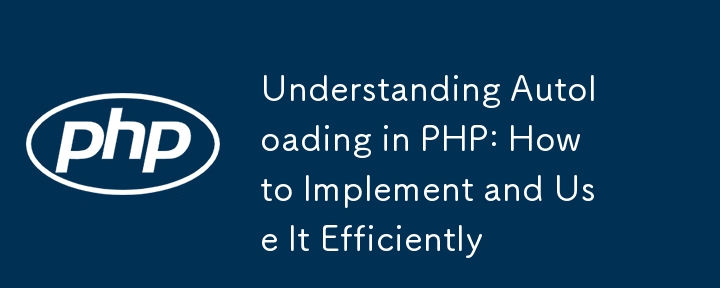
Understanding Autoloading in PHP: How to Implement and Use It Efficiently
Article Introduction:Autoloading in PHP: Concept and Implementation
Autoloading is a mechanism in PHP that automatically loads classes when they are needed, without requiring an explicit include or require statement for each class file. It helps streamline code org
2025-01-01
comment 0
710

How do I configure classmap autoloading in my composer.json file?
Article Introduction:To configure the automatic loading of Composer's classmap, first use the "classmap" key under "autoload" in composer.json to specify the directory or file. For example: {"autoload":{"classmap":["lib/","database/models/"]}}, Composer will scan the .php file in these paths and generate class maps. You can also specify a single file such as legacy_class.php. renew
2025-07-14
comment 0
767
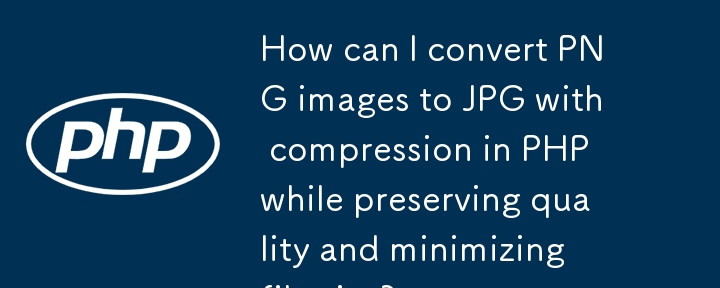
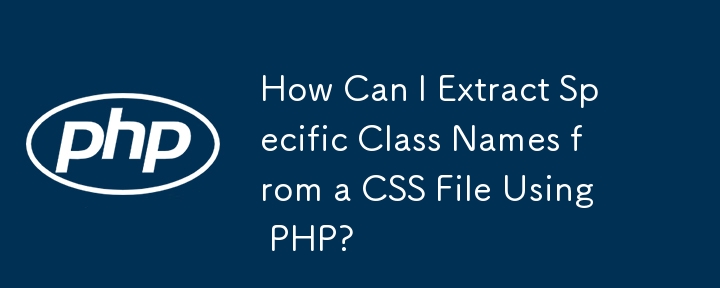

Unveiling Runtime Context with PHP's Eight Magic Constants
Article Introduction:PHP has eight magic constants that change automatically according to usage location for debugging, logging, and dynamic functions. 1.LINE returns the current line number, which is convenient for positioning errors; 2.FILE returns the absolute path of the current file, which is often used to include files or log records; 3.DIR returns the directory where the current file is located, which is recommended for path reference; 4. FUNCTION returns the current function name, which is suitable for function-level debugging; 5.CLASS returns the current class name, which contains namespace, which is suitable for class context recognition; 6.TRAIT returns the current trait name, which points to the trait itself even when called in the class; 7.METHOD returns the class name and method name of the current method (such as Class::method), which is used for tracing
2025-07-30
comment 0
618
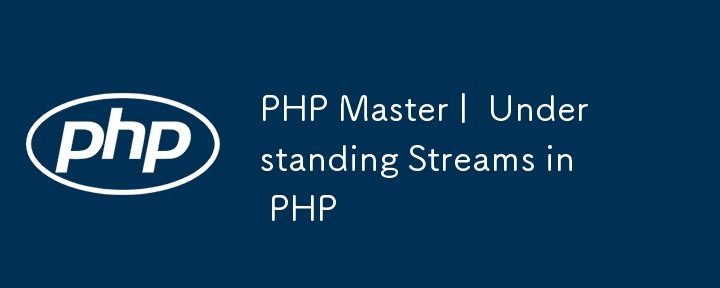
PHP Master | ?Understanding Streams in PHP
Article Introduction:Core points
PHP streaming is a powerful tool for generalizing file, network and data compression operations. They can be read or written linearly and can fseek() anywhere in the stream. Each stream has a wrapper for handling specific protocols or encodings.
PHP provides built-in wrappers, protocols, and filters, and allows the creation and registration of custom wrappers, protocols, and filters. The default wrapper is file://, which is used every time you access the file system. Other wrappers include wrappers for HTTP, Amazon S3, MS Excel, Google Storage, Dropbox, and Twitter.
The stream context is a stream-specific parameter
2025-02-23
comment 0
1043

How to Execute Java Code from Within a PHP Website Securely?
Article Introduction:This article provides a secure approach for executing Java files on a server from a PHP website. It utilizes the PHP exec() function to execute Java programs, and offers a code example for executing a Java class from a JAR file. Additionally, it disc
2024-10-23
comment 0
608

How to Troubleshoot PHP Mail and PHPMailer Failure?
Article Introduction:This article addresses troubleshooting PHP mail() and PHPMailer functions when experiencing error messages. The main issue is email sending failure, potentially due to various causes such as class file corruption, incorrect SMTP settings, or lack of
2024-10-22
comment 0
909

















